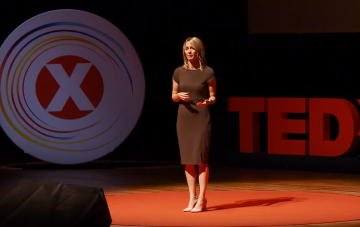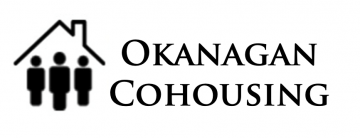

Building Sustainable & Affordable Communities – Together!
Okanagan Cohousing (OKC) is a non-profit initiative to facilitate people in coming together to create cohousing neighbourhoods in the Okanagan, BC. These communities aim to provide affordable, quality-built homes that inspire healthy, socially connected, and sustainable lifestyles through SMARTer Growth and Sharing Economy principles.
Sustainability • Harmony • Inclusiveness
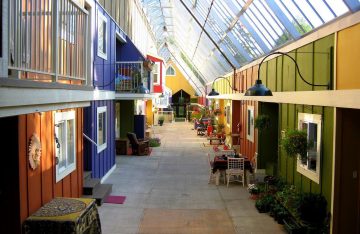
WindSong Cohousing Community (Langley BC, Canada)
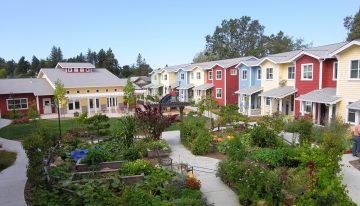
Petaluma Avenue Homes, (Sebastopol CA, USA)
On this page:
What is Cohousing?
About Okanagan Cohousing
Resources for OKC Members
More Cohousing Resources
What is Cohousing?
Cohousing achieves a high, sustainable quality of life with SMARTer Growth and Sharing Economy principles – it is not social housing; is it not co-op housing. It is planned, intentional community.
Cohousing Communities are collaborative neighborhoods created with a little ingenuity. Complexes are designed and manged through a participatory process with consensus decision making by all residents who choose to live in the close-knit neighbourhood. They consist of privately owned homes complemented by extensive common areas designed for every day use (eg. a common house, community kitchen and garden, workshops). Cohousing neighborhoods bring together the value of privacy with the benefits of community to stand as an innovative and sustainable answer to today’s environmental and social issues.
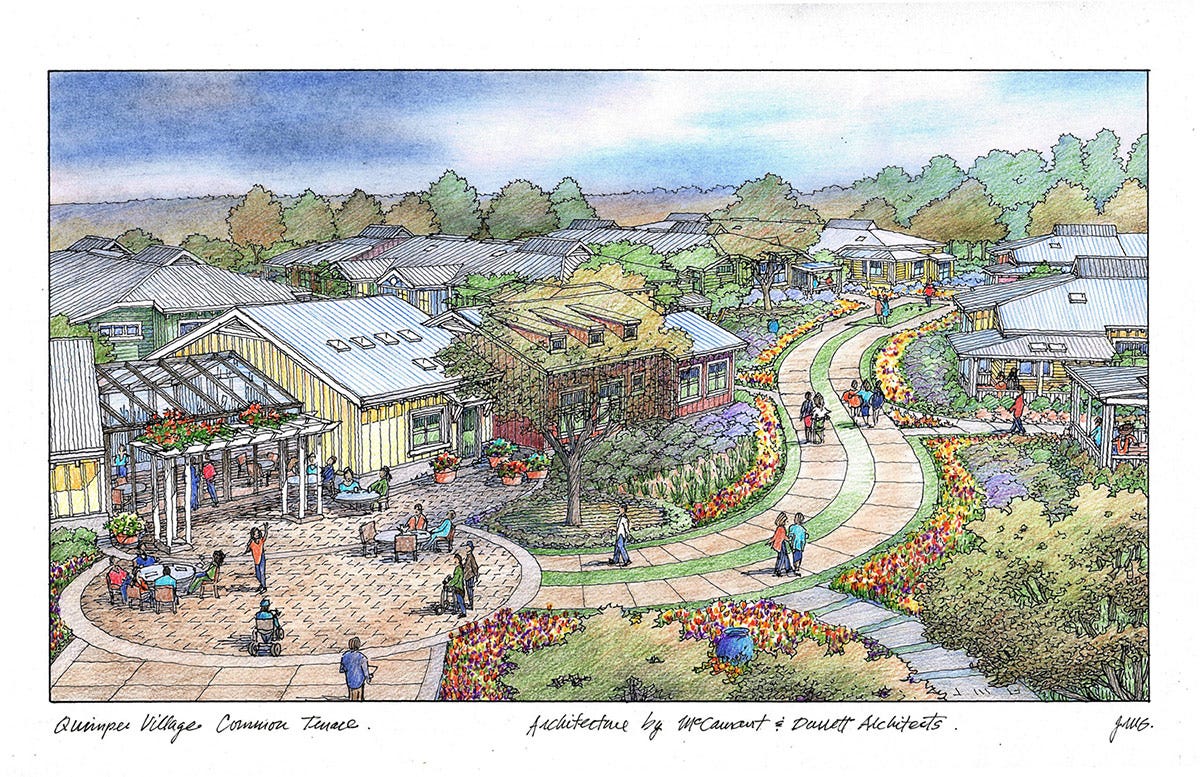
Community-Oriented Design provides convenient amenities to be used daily by the residents and increase the number of regular social interactions they have (while also supporting individual autonomy and privacy). For example, many communities have all parking at the rear with pedestrian-oriented pathways connecting the houses (this also increases neighborhood safety, noise and CO2 pollution). Another common design trait is to place the commons house in the community’s centre to increasing the likelihood of residents having to pass by and interact with their neighbors.
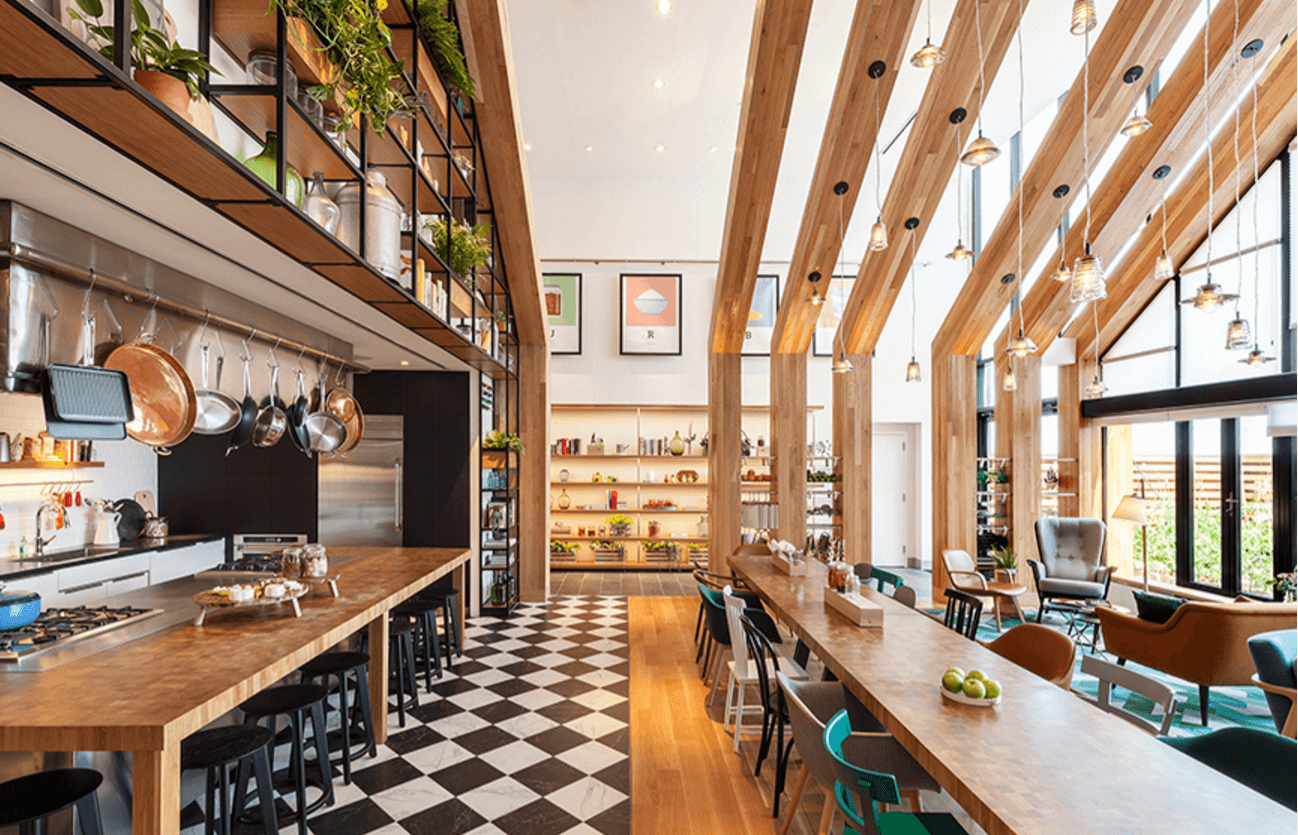
“A family that eats together, stays together” – this applies to the extended family of a cohousing community. By cooking, cleaning, and eating together, we can build strength in a community’s connection and function.
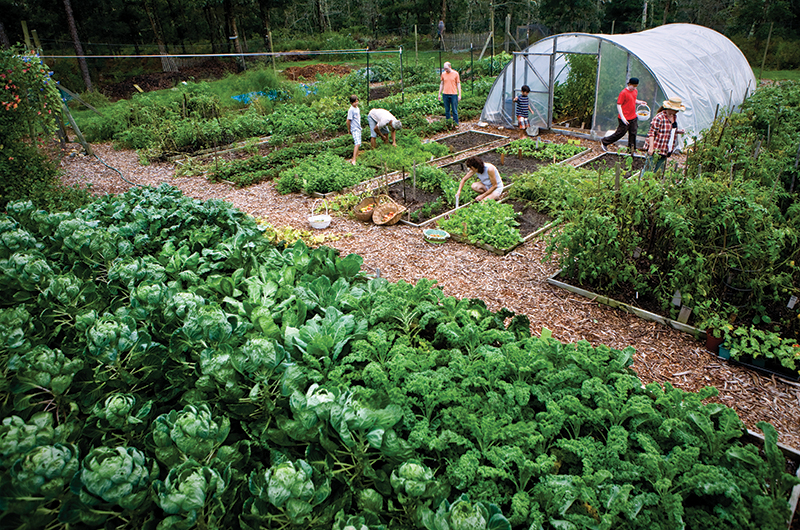
Community Gardens bring people together and produce food for the community. Many communities also donate their extra food to their local community and shelters.
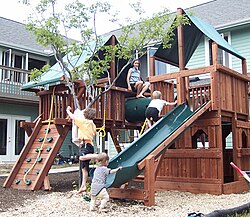
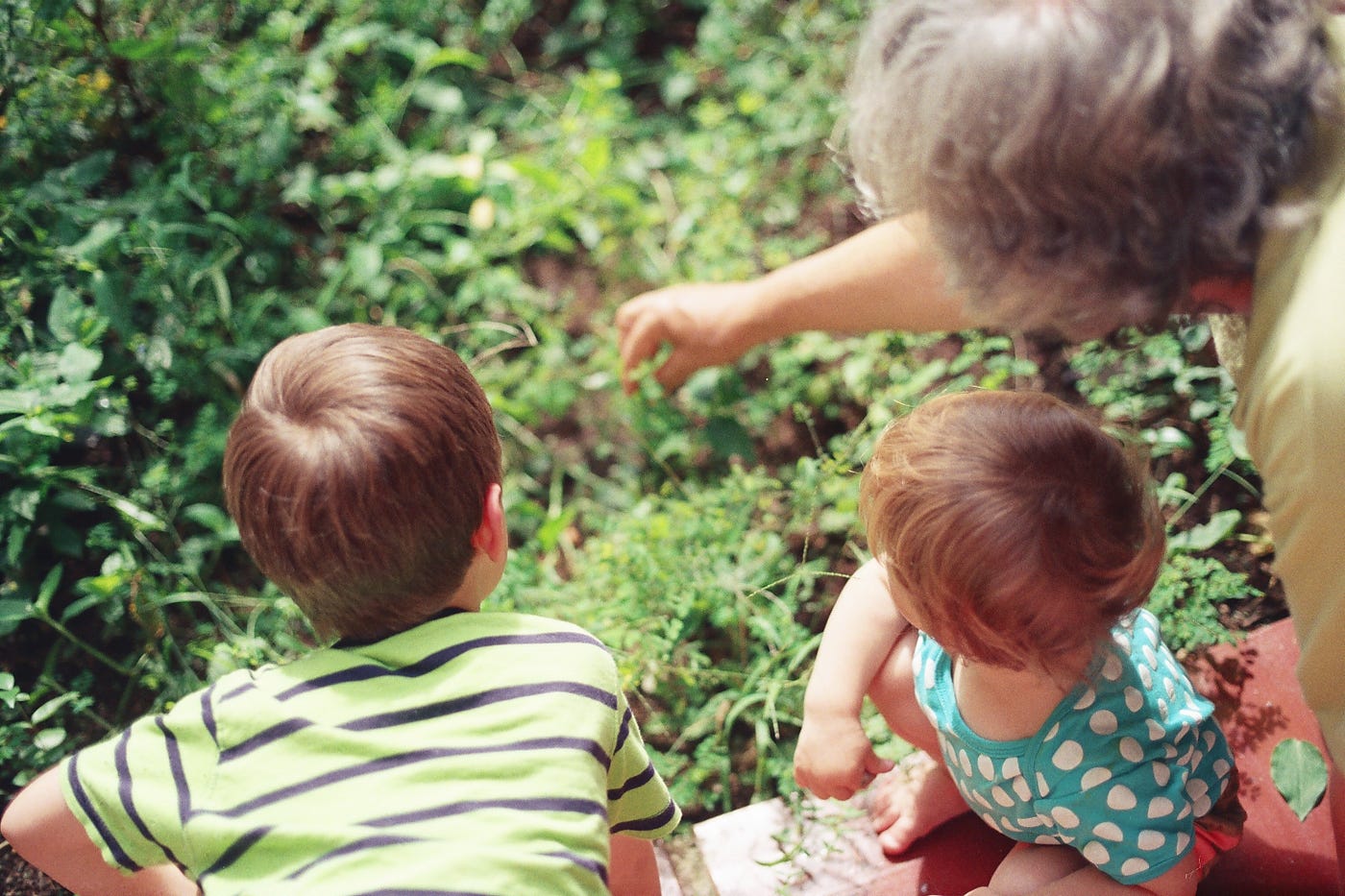
“It Takes a village to raise a child” – this is the idea that it takes a community of people to raise a child in a positive, safe, and healthy environment. By combining their resources (eg. time, learning tools) and experiences to enrich the child’s support network.
History of Cohousing:
Beginning in 1960’s Denmark, an architect gathered a group of friends together to discuss housing options – they were tired of the isolation of single family homes yet enjoyed the modernity of their privacy. Their solution formed into reality over the next decade as they purchased property and joined forces with another like-minded group to create the first two cohousing communities by 1973 – one near Copenhagen and one near Hillerod. This concept, of course, takes route in many traditional forms of community living, but cohousing has evolved to uniquely support both community and autonomy for its residents.
Cohousing is now a well-establish housing option in Denmark and has since spread throughout Europe, North America, Australia, and New Zealand. However, many forming communities still face large barriers due to a lack of policy and financial support – we believe this is due to a lack of understanding and awareness of cohousing, but as its successes and benefits become more evident and because of organizations like Canadian Cohousing Network and the UK Cohousing Network, cohousing is gaining ground as a viable housing option and support is more forthcoming.
For more about the history of cohousing: https://cohousing.ca/about-cohousing/history-of-cohousing/
Cohousing in Canada:
The first cohousing community was build in 1995 Langley, BC – WindSong Cohousing Community. There are now near 20 completed communities throughout Canada and many more in-progress. Awareness of cohousing in Canada is increasing, however, it has unfortunately not gained the same traction as it has in other countries such as the US and UK, again due to lacking policy and financial support [Clark, 2022]. Some cultural barriers may also be at play, but after the exacerbated feelings of loneliness and isolation from the Covid-19 pandemic and the ridiculously high costs of homes, the faults of conventional single-family homes are become too apparent to ignore. We need a solution. We need change. We need affordable roofs over our heads. We need community connection. We Need Cohousing.
For a full list of Canadian Cohousing communities: https://cohousing.ca/communities/
About Okanagan Cohousing

Okanagan Cohousing (OKC), formerly Kelowna Cohousing, began in 2008 as Dr. Gordon Lovegrove sought to bring cohousing to his home area in Canada, the Okanagan BC. We operate as a non-profit consulting service for anyone wanting to create or join a cohousing community in our beautiful valley.
The aim of OKC is to connect the local cohousing network and facilitate people in coming together to form their cohousing groups, guide them through development, and provide them with the resources and information they need to bring their projects to completion with sustainability and quality of life top of mind. We are currently hosting monthly meetings, sharing information via email, Messenger, and Slack, and organizing other fun events.
In 2018, Dr. Lovegrove led a team of UBCO capstone students in developing a property assessment method and hosting a public meeting & design charrette to bring interest to their project. This result was over a hundred people to attend the meeting and several putting money down in commitment of building a community in Kelowna. We have since grown in numbers, resources, and knowledge, and have several projects well underway.
OKC is also coordinating with the Canadian Cohousing Network to increase the accessibility and affordability of cohousing across our country.
Learn more about OKC: Okanagan Cohousing (Kelowna) – Project Summary (PDF)
Project Status:
There are currently three OKC groups forming. All are looking for more members to reach a critical mass to move their projects forward.
‘Kelowna ‘Pizza’ Cohousing‘: this community aims to be nearby Kelowna amenities, such as public transit options, shops, and jobs, while still in a place surrounded by nature.
‘Rural Okanagan Cohousing‘: this community wishes to find a piece of land in rural Okanagan, where they can build and live as sustainable as possible.
South Okanagan Cohousing: Forming in the city of Penticton
Upcoming Events:
Monthly Coordination Meetings (MCM): Hosted every 2nd Thursday of the month on Zoom, 7-8PM, with an additional portion in-person from 5-7PM roughly every second month. Email okanagan.cohousing@gmail.com for the link & more info; upcoming MCMs listed below:
We welcome any and all people, whether you’re just curious to explore the cohousing concept or you’re willing and ready to build or join a community. These are planning and information sessions designed to connect like-minded folk who may be interested in collaborating with each other to create cohousing in the Okanagan, and guiding them through the cohousing process. Each month, we will explore a different theme of cohousing from conception, creation, through to ongoing life in cohousing. We will present these themes in an order most relevant to the forming OKC communities. See ‘Resources for OKC Members’ for past meeting minutes.
FOR UPCOMING MCM, Visit our SMARTer Growth News & Events HERE
& Find More Canadian Cohousing Network Events HERE
Project Details
Principal Investigator: Dr. Gordon Lovegrove
Project Lead: Laura Chatham (until April 30th 2023)
Previous HQL: Christopher Kane, Kate Moffat
Resources for OKC Members
Past Presentations / Papers:
More Cohousing Resources
We respectfully acknowledge that Okanagan Cohousing aims to build housing on the unceded territory of the Syilx (Okanagan) Peoples. We hope that by developing inclusive neighborhoods designed with resident participation to strengthening community connection, we can help bring all peoples of Canada together for the process of healing & reconciliation.
